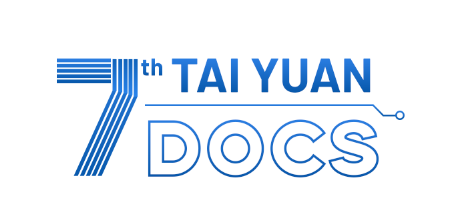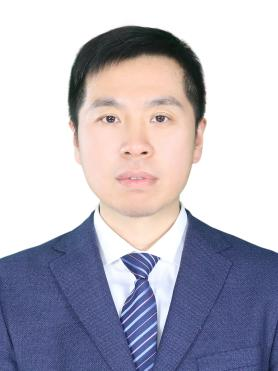| Prof. Jonathan M. GaribaldiIEEE Fellow University of Nottingham Ningbo China, China Prof. Jon Garibaldi is currently the Provost of the University of Nottingham Ningbo China, and a member of the University of Nottingham Executive Board (UEB). He is Head of the Intelligent Modelling and Analysis (IMA) Research Group and was a Founding Director of the University of Nottingham Advanced Data Analysis Centre (ADAC). After joining the School of Computer Science University of Nottingham in 2002, he became a full Professor in 2012, and held a variety of administrative roles including Admissions Tutor, Director of Teaching and then Head of School from 2016 to 2023. His main research interest is in developing intelligent techniques to model human reasoning in uncertain environments, with a particular emphasis on the medical domain. He has particular interest in using non-standard fuzzy sets and systems, such as type-2 fuzzy sets and systems, to model human reasoning processes. He has published over 300 papers in internationally peer-reviewed venues, and has led or participated in a wide range of multi-disciplinary research projects worth over £80M. He is a Fellow of the IEEE, was the Editor-in-Chief of IEEE Transactions on Fuzzy Systems from Jan 2017 to Dec 2022, and is currently Vice President of Publications of the IEEE CIS Administrative Committee. Title: Emerging Topics in Fuzzy AI Abstract: Fuzzy sets and systems are a mature technology, now in existence for almost 60 years, and one of the three main pillars of Computational Intelligence. Whilst fuzzy sets and systems have made significant impact in CI over the years, recently there has been a relative decline in interest, with (particularly) Deep Learning and Large Language Models receiving huge attention worldwide and largely dominating AI research. In this talk, I will argue that fuzzy-based research still has an important role to play in the future of AI. As such, I will identify and discuss some emerging topics in fuzzy systems which I suggest are interesting and potentially valuable areas of future research focus. |
| Prof. Mengjie ZhangIEEE Fellow Victoria University of Wellington, New Zealand Mengjie Zhang is a Fellow of Royal Society of New Zealand (新西兰皇家科学院院士), a Fellow of Engineering New Zealand (新西兰工程院院士), a Fellow of IEEE (IEEE 会士), Professor of Computer Science (Artificial Intelligence) at Victoria University of Wellington, where he heads the interdisciplinary Evolutionary Computation and Machine Learning Research Group. He is also the Director of the Centre for Data Science and Artificial Intelligence at the University. His research is mainly focused on AI, machine learning and big data, particularly in evolutionary learning and optimisation, feature selection/construction, computer vision and image analysis, scheduling and combinatorial optimisation, classification with unbalanced data and missing data, and evolutionary deep learning and transfer learning. Prof Zhang has published over 900 research papers in refereed international journals and conferences. He has been serving as an associated editor for over ten international journals and involving major AI and EC conferences as a chair. He received the “Evo* Award for Outstanding Contribution to Evolutionary Computation in Europe 2023” and the “2024 Australasian Artificial Intelligence Distinguished Research Contribution Award”. Since 2007, he has been listed as a top five (currently No. 3) world genetic programming researchers by the GP bibliography (http://www.cs.bham.ac.uk/~wbl/biblio/gp-html/index.html). Prof Zhang is currently the Chair for IEEE CIS Awards Committee. He is also a past Chair of the IEEE CIS Intelligent Systems Applications Technical Committee, the Emergent Technologies Technical Committee and the Evolutionary Computation Technical Committee, a past Chair for IEEE CIS PubsCom Strategic Planning subcommittee, and the founding chair of the IEEE Computational Intelligence Chapter in New Zealand. Title: Genetic Programming for Explainable Artificial Intelligence Abstract: Explainable artificial intelligence (XAI) has recently attracted great attention due to its importance in critical application domains such as self-driving cars, law, and healthcare. Genetic programming (GP) is a powerful evolutionary algorithm for AI, machine learning and AutoML. Compared with other standard machine learning models such as neural networks, the models evolved by GP tend to be more interpretable due to the symbolic nature of the model structure. GP model interpretability has been playing an increasingly important role in XAI. This talk will first briefly overview explainable AI, then focus on how GP helps XAI in three aspects: intrinsic XGP, aiming to directly evolve more interpretable (and effective) models by GP; post-hoc XGP, which uses GP to explain other black-box machine learning models and the models evolved by GP by simpler models (e.g. linear models); and GP visualisation, which focuses on visual interpretability. Finally, I will discuss the challenges and future directions for XGP. |
| Prof. Yiu-ming CheungMember of European Academy of Sciences and Arts IEEE/IAPR/AAAS/ IET/BCS Fellow Hong Kong Baptist University (HKBU), China Yiu-ming Cheung is currently a Chair Professor (Artificial Intelligence) of the Department of Computer Science, Dean of Institute for Research and Continuing Education (IRACE), and Associate Director of Institute of Computational and Theoretical Studies in Hong Kong Baptist University (HKBU). He received PhD degree from Department of Computer Science and Engineering at The Chinese University of Hong Kong in 2000, and then joined the Department of Computer Science at HKBU in 2001. He is a member of European Academy of Sciences and Arts, and an IEEE Fellow, AAAS Fellow, IAPR Fellow, IET Fellow, and British Computer Society (BCS) Fellow. He is the Awardee of RGC Senior Research Fellow with receiving a fellowship grant of HK$7.8 million over a period of 60 months. Since 2019, he has been ranked the World’s Top 1% Most-cited Scientists in the field of Artificial Intelligence and Image Processing by Stanford University for six consecutive years. He was elected as a Distinguished Lecturer of IEEE Computational Intelligence Society in 2020, and named a Chair Professor of Changjiang Scholars Program by the Ministry of Education of the People’s Republic of China for the dedication and exceptional achievements in his academic career. Also, he is the Editor-in-Chief of IEEE Transactions on Emerging Topics in Computational Intelligence. His research interests include machine learning and visual computing, as well as their applications in data science, pattern recognition, multi-objective optimization, and information security. He has published over 300 articles in the high-quality conferences and journals, including TPAMI, TNNLS, TIFS, TIP, TMM, TKDE, TCYB, CVPR, IJCAI, AAAI, and so on. His four co-authored papers have been selected as ESI Highly Cited Papers (i.e. listed in Top 1% globally in the corresponding discipline). Moreover, he has been granted one Chinese patent and two US patents. Subsequently, the underlying technique of his eye-gaze tracking patent has been successfully applied to develop the first mobile app for fatigue driving detection. It turns out that, selected from 1000 new inventions and products of 700+ competition teams from 40 countries, he was awarded two most prestigious prizes: (1) the Gold Medal with Distinction (i.e. the highest grade in Gold Medals) and (2) Swiss Automobile Club Prize, in the 45th International Exhibition of Invention, Geneva, Switzerland, on March 29-April 2, 2017, in recognition of his innovative work. Also, he was the Gold Award Winner of Hong Kong Innovative Invention Award in the Seventh Hong Kong Innovative Technologies Achievement Award 2017. In addition, he won the Gold Medal with Congratulations of Jury (i.e. the highest grade in Gold Medals) and the Award of Excellence from Romania, respectively, at the 46th International Exhibition of Inventions of Geneva 2018, and Gold Medal Award at the 15th International Invention Fair in the Middle East 2025. He was the recipient of: (1) 2023-2024 President’s Award for Outstanding Performance in Scholarly Work at HKBU, (2) HKBU Innovation Award 2024, (3) 2023 APNNS Outstanding Achievement Award, (4) Best Research Award of Department of Computer Science at HKBU in 2011 and 2021, respectively, (5) 2022-23 Faculty Research Excellence Paper Award in HKBU, (6) Best in Theoretical Paper Award in WI-IAT’2020, (7) Best Student Paper Award in ISMIS’2018, and (8) Best Paper Awards in DOCS’2024, SEAL’2017, ISICA’2017, ICNC- FSKD’2014, and IEEE IWDVT’2005. He is the Founding Chairman of IEEE (Hong Kong) Computational Intelligence Chapter and the Chair of Technical Community on Intelligent Informatics (TCII) of IEEE Computer Society. He has served in various capacities (e.g., Organizing Committee Chair, Program Committee Chair, Program Committee Area Chair, and Financial Chair) at several top-tier international conferences, including IJCAI’2021, ICPR’2020, ICDM’2017 & 2018, WCCI’2016, WI-IAT’2012, ICDM’2006 & WI-IAT’2006, to name a few. He is an Associate Editor of several prestigious journals, including IEEE Transactions on Cybernetics, IEEE Transactions on Emerging Topics in Computational Intelligence, IEEE Transactions on Cognitive and Developmental Systems, IEEE Transactions on Neural Networks and Learning Systems (2014-2020), Pattern Recognition, Pattern Recognition Letters, Knowledge and Information Systems (KAIS), and Neurocomputing, as well as the Guest Editor in several international journals. Currently, he is an Engineering Panel member of Research Grants Council, Hong Kong, a member of assessment panel of Enterprise Support Scheme (ESS) under the Innovation and Technology Fund (ITF), and a Fellow Evaluation Committee member of IEEE Computational Intelligence Society and IEEE Computer Society, respectively. Title: Imbalanced Data Learning: From Class Imbalance to Long-tailed Data Classification for Visual Recognition Abstract: Imbalance data refer to the number of samples among classes is extremely imbalanced, which is common in our daily life, e.g. medical diagnosis, and autonomous driving.In general, the problem of learning from imbalanced data is nontrivial and challengingin the field of data engineering and machine learning, which has attracted growing attentions in recent years. In this talk, the imbalance data learning problem is introduced from class imbalance to long-tailed data learning, including their potential applications, and the impacts from a model learning perspective. Then, the latest research progress on imbalance data learning will be reviewed, including some representative methods in the literature. Lastly, the potential research directions in this field will be discussed. |
| Prof. Chunhua YangIEEE Fellow Central South University (CSU), China Chunhua Yang, Professor at Central South University (CSU), serves as the Deputy Director of the University Academic Committee and Dean of the Faculty of Information Science. She is a recipient of the National Science Fund for Distinguished Young Scholars, an IEEE Fellow, and a Fellow of the Chinese Association of Automation (CAA). She was selected for the New Century National Hundred, Thousand and Ten Thousand Talent Project. Prof. Yang is the Director of the Key Laboratory of "Industrial Intelligence and Systems" (Ministry of Education) and leads the National Huang Danian-style Teacher Team. Her long-term research focuses on complex industrial process control and intelligent manufacturing systems technology. She has authored 3 academic monographs, published over 200 SCI-indexed papers, and been granted more than 100 Chinese national invention patents. Her awards include the Third National Innovation Competition Award, 1 Second Prize of the National Technology Invention Award, and 3 Second Prizes of the National Science and Technology Progress Award. She serves on the editorial boards of journals including IEEE Transactions on Industrial Electronics and IEEE/ASME Transactions on Mechatronics. Additionally, she holds the positions of Vice Chair of IFAC TC6.2 (Mining, Mineral and Metal Processing) within the International Federation of Automatic Control (IFAC), Chair of the CAA Committee for Women in Automation, and Chair of the Academic Committee on Automation of the Nonferrous Metals Society of China. |
| Prof. Yongduan SongIEEE/ AAIA/ CAA Fellow Chongqing University, China Yongduan Song, a Doctoral Supervisor and Fellow of IEEE, AAIA, and CAA, is an Academician of the International Eurasian Academy of Sciences, a Registered Professional Engineer (USA), and an honoree in Who's Who Among America's Teachers. He serves as an Executive Council Member of the Chinese Association of Automation. Currently, he holds the positions of Director of the Artificial Intelligence Research Institute at Chongqing University, Editor-in-Chief of IEEE Transactions on Neural Networks and Learning Systems, and Head of the Smart Engineering Research Institute at Chongqing University. He obtained his Ph.D. in Electrical and Computer Engineering from Tennessee Technological University, USA, in 1992. His accolades include four first-place awards and two second-place awards from the Ministry of Education of China, Chongqing Municipality, Chinese Association of Automation, and Chinese Institute of Command and Control. Professor Song's research encompasses intelligent control, fault-tolerant control, adaptive coordinated control, aircraft navigation and control, renewable energy systems, robotics and intelligent unmanned systems, collective intelligence systems, biomimetic intelligent control systems, coordinated control theory and applications, and active safety early warning and control for complex systems. |
| Researcher Peng ZengDeputy Director of the Shenyang Institute of Automation, Chinese Academy of Sciences, China Zeng Peng, Deputy Director of the Shenyang Institute of Automation, Chinese Academy of Sciences; Doctoral Supervisor; Member of the Council of the Chinese Association of Automation ; Chairman of the Edge Computing Technical Committee; and Executive Deputy Director of the Liaoning Liaohe Laboratory. His primary research focuses on industrial Internet and smart manufacturing technologies. He has received six scientific awards, including the Second Prize of National Technology Invention Award and the First Prize of the National Standard Innovation Contribution Award. Title: Logic-Informed Reinforcement Learning for Large-Scale CPS Abstract: Large-scale Cyber-Physical Systems (CPS) require the joint scheduling of discrete cyber actions and continuous physical parameters under strict safety-logic constraints. However, current hierarchical scheduling practices compromise global optimality, and existing Reinforcement Learning (RL) solutions face challenges in handling these hybrid constraints. To address this, we propose Logic-Informed Reinforcement Learning (LIRL). This approach accelerates convergence by a factor of three to six times. As constraints can be specified using only declarative logic, the framework seamlessly transfers to application areas such as integrated optimization of production cycle and energy consumption in smart manufacturing, coordinated scheduling of traffic signals, and smart grid dispatch. LIRL paves the way for safe real-time optimization of large-scale CPS. |
| Prof. Jiye LiangIEEE Fellow Shanxi University, China Jiye Liang, Ph.D., Professor, Doctoral Supervisor, IEEE Fellow, Fellow of the China Computer Federation (CCF), Fellow of the Chinese Association for Artificial Intelligence (CAAI), Chair of the Academic Committee of Shanxi University, and Director of the Key Laboratory of Computational Intelligence and Chinese Information Processing of Ministry of Education. He currently serves as a member of the Artificial Intelligence and Blockchain Committee of the Science and Technology Commission of the Ministry of Education, a member of the Teaching Steering Committee for Computer Science Majors of the Ministry of Education, Chair of the Technical Committee on Artificial Intelligence and Pattern Recognition of the China Computer Federation (CCF), Executive Director of the Chinese Association for Artificial Intelligence (CAAI), the Chairman of Shanxi Province's Computer Society, and the State Council Expert for Special Allowance in China. Professor Liang has led over ten major projects, including the“2030–New Generation Artificial Intelligence”major scientific and technological innovation initiative, Key Programs Fund projects of the National Natural Science Foundation of China, and National High-Tech Research and Development Program (863 Program). He has published more than 400 papers in prominent international and domestic journals and conferences such as AI, JMLR, IEEE TPAMI, IEEE TKDE, NeurIPS, ICML, and CVPR. As the principal investigator, he has received three First Prizes of the Shanxi Provincial Natural Science Award, one Gold Medal at the 5th China International Invention Exhibition, and two Special Prizes of the Shanxi Provincial Teaching Achievement Award. From 2014 to 2024, he has been consecutively listed among Elsevier’s Highly Cited Chinese Researchers. Four doctoral students under his supervision have received prestigious awards, including the Outstanding Doctoral Dissertation Award of the China Computer Federation (CCF), the Outstanding Doctoral Dissertation Award of the Chinese Association for Artificial Intelligence (CAAI), and the Outstanding Doctoral Dissertation Award of the Chinese Information Processing Society of China (CIPS). Title: Research Advances and Future Directions in Representation Learning Abstract: The performance of machine learning methods heavily depends on the representation of data. In the era of deep learning, data representation has been integrated into the learning process, and obtaining effective data representations has gradually become a central focus of the field. At present, representation learning has emerged as a significant research direction in the fields of machine learning and artificial intelligence. This report first introduces the background, major approaches, and key challenges of representation learning. It then elaborates on our recent research progress in representation learning from three perspectives, i.e., concept cognition, generalization error, and Bayesian error rate. Finally, we discuss the application of graph representation learning in point cloud data analysis and provide an outlook on future research directions. |







